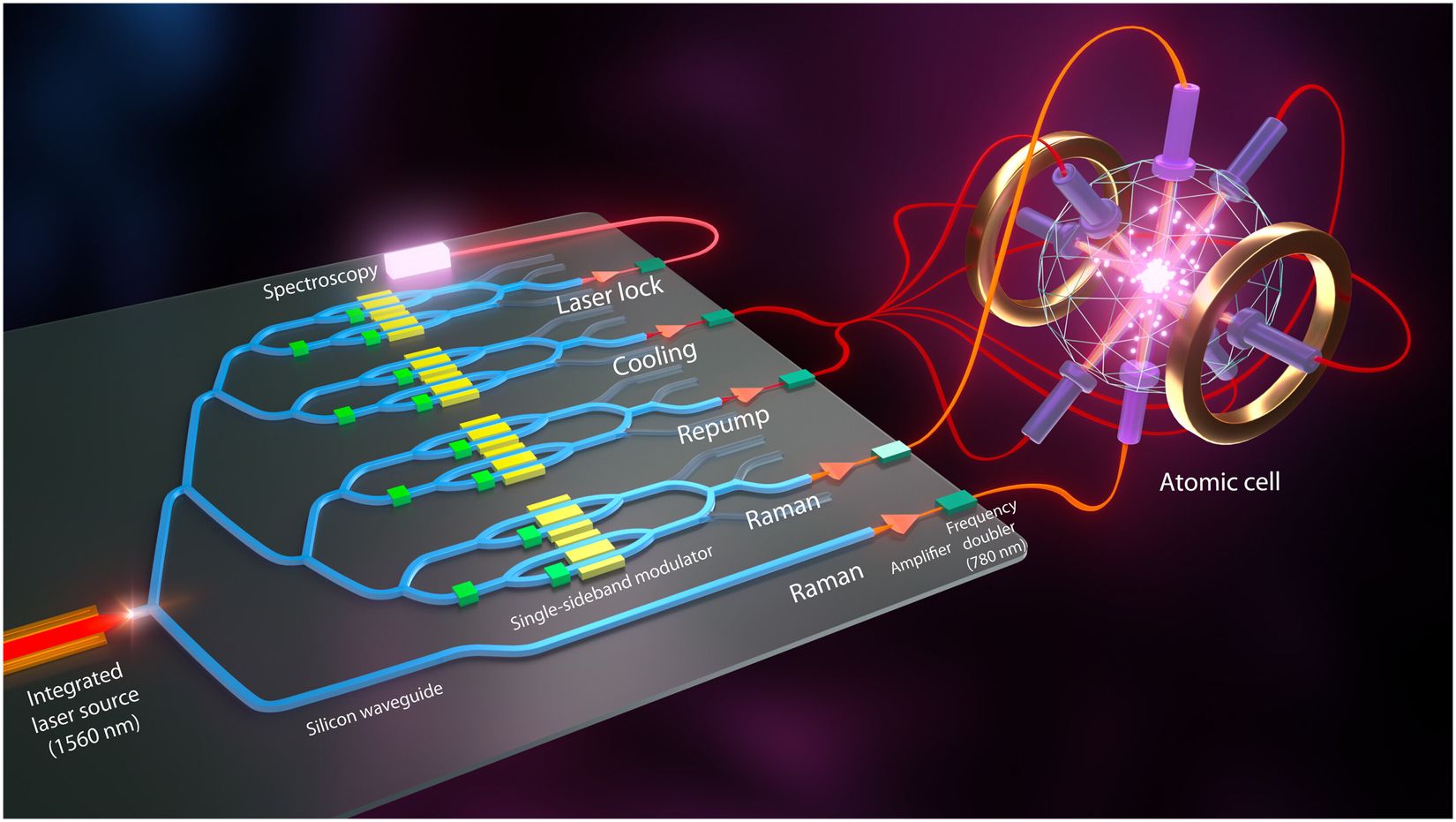
Quantum sensors are transforming how we measure the world around us. These advanced devices use the principles of quantum mechanics to achieve unprecedented levels of precision and sensitivity. But what exactly makes them so special? From detecting gravitational waves to improving medical imaging, quantum sensors are pushing the boundaries of what we thought possible. They can measure tiny changes in magnetic fields, temperature, and even time with incredible accuracy. Why should you care? Because these sensors have the potential to revolutionize industries like healthcare, navigation, and environmental monitoring. Imagine a future where early disease detection is routine, navigation systems are flawless, and environmental changes are tracked in real-time. Intrigued? Let's dive into 25 fascinating facts about quantum sensors that will blow your mind!
What Are Quantum Sensors?
Quantum sensors are devices that use quantum mechanics to measure physical quantities with high precision. These sensors are revolutionizing fields like medicine, navigation, and environmental monitoring.
- Quantum sensors can detect changes in magnetic fields as small as a few femtoteslas, which is a million times weaker than the Earth's magnetic field.
- They often use atoms or ions trapped in electromagnetic fields to measure time, making atomic clocks incredibly accurate.
- Quantum sensors can measure gravitational waves, ripples in spacetime caused by massive cosmic events like black hole collisions.
- They are used in MRI machines to produce detailed images of the inside of the human body.
- Quantum sensors can detect single photons, the smallest units of light, making them useful in quantum communication.
How Do Quantum Sensors Work?
Understanding how these sensors operate can be complex, but here are some simplified explanations.
- Quantum sensors often rely on superposition, where particles exist in multiple states at once, to enhance measurement precision.
- Entanglement, a phenomenon where particles become interconnected, allows quantum sensors to measure properties like distance and time with unprecedented accuracy.
- They use quantum tunneling, where particles pass through barriers they shouldn't be able to, to detect extremely small changes in physical quantities.
- Quantum sensors can operate at very low temperatures, close to absolute zero, to reduce noise and increase sensitivity.
- They often use laser cooling to slow down atoms, making them easier to measure accurately.
Applications of Quantum Sensors
Quantum sensors have a wide range of applications that impact various industries and scientific research.
- In medicine, quantum sensors improve the resolution of MRI scans, helping doctors diagnose diseases earlier.
- They are used in navigation systems, providing more accurate positioning data than traditional GPS.
- Quantum sensors help detect underground resources like oil and minerals by measuring minute changes in the Earth's gravitational field.
- They are used in environmental monitoring to detect pollutants at very low concentrations.
- Quantum sensors can improve the accuracy of weather forecasting by measuring atmospheric conditions more precisely.
Future of Quantum Sensors
The future holds exciting possibilities for quantum sensors as technology continues to advance.
- Researchers are developing portable quantum sensors that could be used in everyday devices like smartphones.
- Quantum sensors could enable new types of medical imaging techniques that are less invasive and more accurate.
- They may play a crucial role in the development of quantum computers by providing precise measurements of quantum states.
- Quantum sensors could improve the safety and efficiency of autonomous vehicles by providing more accurate data about their surroundings.
- They might be used in space exploration to measure gravitational fields and other physical quantities on other planets.
Challenges in Quantum Sensor Development
Despite their potential, developing quantum sensors comes with its own set of challenges.
- Quantum sensors often require extremely low temperatures, making them difficult to use in everyday applications.
- They are sensitive to environmental noise, which can affect their accuracy.
- Quantum sensors can be expensive to produce, limiting their widespread adoption.
- Integrating quantum sensors with existing technology can be complex and requires significant research and development.
- Ensuring the stability and reliability of quantum sensors over long periods remains a significant challenge for scientists and engineers.
The Future of Quantum Sensors
Quantum sensors are changing how we measure the world. These devices, using quantum mechanics, offer precision and sensitivity that traditional sensors can't match. From medical imaging to navigation, their applications are vast and growing. As technology advances, quantum sensors will become even more integral to various fields, pushing the boundaries of what's possible.
Researchers are continually finding new ways to harness quantum properties, leading to innovations we can't yet imagine. Governments and private sectors are investing heavily in this technology, recognizing its potential to revolutionize industries.
Staying informed about quantum sensors is crucial as they become more prevalent in everyday life. Whether you're a student, professional, or just curious, understanding these advancements can provide a glimpse into the future of technology. Keep an eye on this exciting field; it's only just beginning to unfold.
Was this page helpful?
Our commitment to delivering trustworthy and engaging content is at the heart of what we do. Each fact on our site is contributed by real users like you, bringing a wealth of diverse insights and information. To ensure the highest standards of accuracy and reliability, our dedicated editors meticulously review each submission. This process guarantees that the facts we share are not only fascinating but also credible. Trust in our commitment to quality and authenticity as you explore and learn with us.


